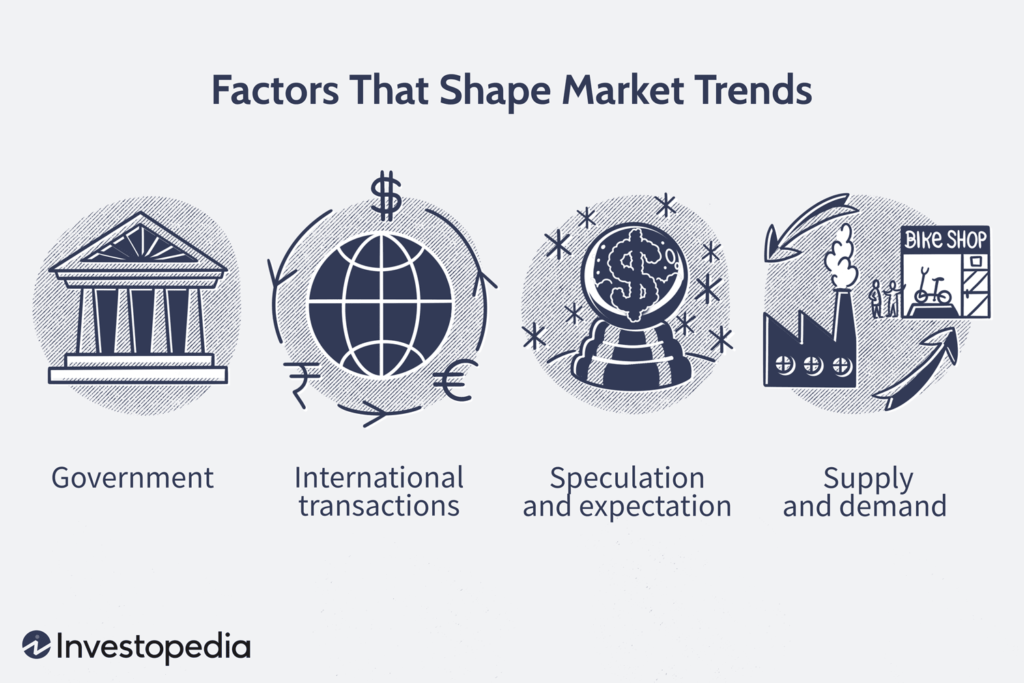The intricate relationship between global events and stock market trends is a topic of great significance for investors and analysts alike. Understanding how global events, such as geopolitical tensions, economic shifts, and natural disasters, influence stock market fluctuations is crucial for making informed investment decisions. In this article, we will delve into the various ways these events shape market dynamics, providing insights into the underlying mechanisms that drive investor behavior and market reactions.
As we explore the impact of global events on stock markets, you will discover how factors like international trade agreements, political instability, and global pandemics can lead to significant market volatility. We will also examine historical examples that illustrate these trends, helping you to grasp the patterns that emerge during times of uncertainty. By understanding these influences, you can better navigate the complexities of the stock market and position your investments strategically.
Furthermore, this article will highlight the importance of staying informed about global developments and their potential implications for your investment portfolio. Whether you are a seasoned investor or just starting, recognizing the interplay between global events and stock market trends will empower you to make more educated decisions. So, read on to uncover the critical insights that can enhance your investment strategy and keep you ahead in the ever-evolving financial landscape.
Economic Indicators and Stock Market Reactions
Economic indicators such as GDP growth, unemployment rates, and inflation figures play a crucial role in shaping investor sentiment. When these indicators show positive trends, stock markets often respond favorably, leading to increased investment and higher stock prices. Conversely, negative economic data can trigger sell-offs, as investors seek to minimize losses.
For instance, a sudden rise in unemployment rates may lead to fears of an economic downturn, prompting investors to pull back from the market. Understanding these economic indicators is essential for investors looking to navigate the complexities of stock market trends influenced by global events.
Geopolitical Tensions and Market Volatility
Geopolitical events, such as conflicts, trade wars, and diplomatic tensions, can create significant volatility in stock markets. Investors often react to news of escalating tensions by reassessing their portfolios, leading to rapid fluctuations in stock prices. For example, trade disputes between major economies can disrupt supply chains and impact corporate earnings, causing stock prices to drop.
Moreover, geopolitical uncertainty can lead to a flight to safety, where investors move their capital into less risky assets, such as gold or government bonds. This shift can further exacerbate volatility in the stock market, highlighting the interconnectedness of global events and market dynamics.
Central Bank Policies and Interest Rates
Central banks play a pivotal role in influencing stock market trends through their monetary policies. Decisions regarding interest rates can have a profound impact on investor behavior. Lower interest rates typically encourage borrowing and spending, which can boost corporate profits and, in turn, stock prices. Conversely, rising interest rates may lead to higher borrowing costs and reduced consumer spending, negatively affecting stock market performance.
Investors closely monitor central bank announcements and economic forecasts to gauge potential market movements. Understanding the relationship between central bank policies and stock market trends is essential for making informed investment decisions.
Global Pandemics and Economic Recovery
The COVID-19 pandemic serves as a stark example of how global health crises can influence stock market trends. Initially, the pandemic led to widespread market declines as uncertainty gripped investors. However, as vaccination rates increased and economies began to reopen, stock markets experienced a significant recovery.
This recovery was driven by optimism surrounding economic growth and corporate earnings. Investors began to favor sectors that benefited from the reopening, such as travel and hospitality, while technology stocks that thrived during lockdowns faced corrections. The pandemic highlighted the importance of adaptability in investment strategies in response to global events.
Environmental Events and Sustainable Investing
Natural disasters and climate change have increasingly become factors influencing stock market trends. Events such as hurricanes, wildfires, and floods can disrupt supply chains and impact corporate profitability. As a result, investors are becoming more aware of environmental risks and are increasingly considering sustainability in their investment decisions.
This shift towards sustainable investing has led to the rise of ESG (Environmental, Social, and Governance) criteria, where companies that prioritize sustainability are often favored by investors. Understanding how environmental events shape market trends is crucial for investors looking to align their portfolios with global sustainability goals.
Technological Advancements and Market Disruption
Technological advancements can significantly influence stock market trends by disrupting traditional industries and creating new opportunities. Innovations such as artificial intelligence, blockchain, and renewable energy technologies are reshaping the investment landscape. Companies that adapt to these changes often see their stock prices soar, while those that fail to innovate may struggle.
Investors are increasingly looking for opportunities in tech-driven sectors, leading to a surge in tech stock valuations. Understanding the impact of technological advancements on market trends is essential for investors seeking to capitalize on emerging opportunities.
Global Trade Agreements and Economic Integration
Global trade agreements and economic integration can have profound effects on stock market trends. Trade agreements can open new markets for companies, leading to increased revenues and higher stock prices. Conversely, the imposition of tariffs and trade barriers can negatively impact companies reliant on global supply chains.
Investors must stay informed about changes in trade policies and agreements, as these can significantly influence market sentiment and stock valuations. Understanding the implications of global trade dynamics is crucial for making informed investment decisions.
Investor Sentiment and Market Psychology
Investor sentiment and market psychology play a critical role in shaping stock market trends. Global events can evoke strong emotional responses from investors, leading to herd behavior and market fluctuations. For instance, positive news can create a sense of euphoria, driving stock prices higher, while negative news can lead to panic selling.
Understanding the psychological factors that influence investor behavior is essential for navigating the complexities of the stock market. By recognizing the impact of global events on market sentiment, investors can make more informed decisions and better manage their portfolios.
The stock market is significantly influenced by various global events. Understanding these influences can help investors make informed decisions. Below is a summary of key global events and their impacts on stock market trends.
| Global Event | Description | Impact on Stock Market |
|---|---|---|
| Economic Data Releases | Reports on GDP, unemployment rates, and inflation. | Positive data can boost investor confidence, leading to market rallies; negative data can cause declines. |
| Geopolitical Tensions | Conflicts, wars, or political instability in key regions. | Increased uncertainty often leads to market volatility and declines in stock prices. |
| Natural Disasters | Events such as earthquakes, hurricanes, and pandemics. | Can disrupt supply chains and economic activity, negatively impacting stock prices. |
| Central Bank Policies | Interest rate changes and monetary policy announcements. | Lower interest rates typically encourage investment and can lead to market increases; higher rates may have the opposite effect. |
| Technological Advancements | Innovations that disrupt industries or create new markets. | Can lead to stock price surges for companies involved in new technologies. |
| Global Trade Agreements | New trade deals or tariffs imposed between countries. | Can enhance or hinder market performance depending on the perceived benefits or drawbacks. |
| Corporate Earnings Reports | Quarterly earnings announcements from major companies. | Strong earnings can lead to stock price increases, while weak earnings can result in declines. |



